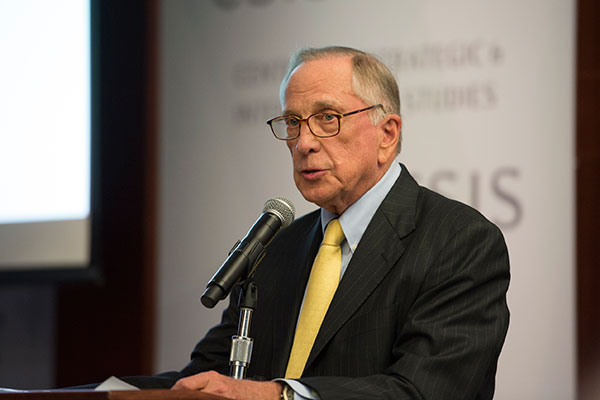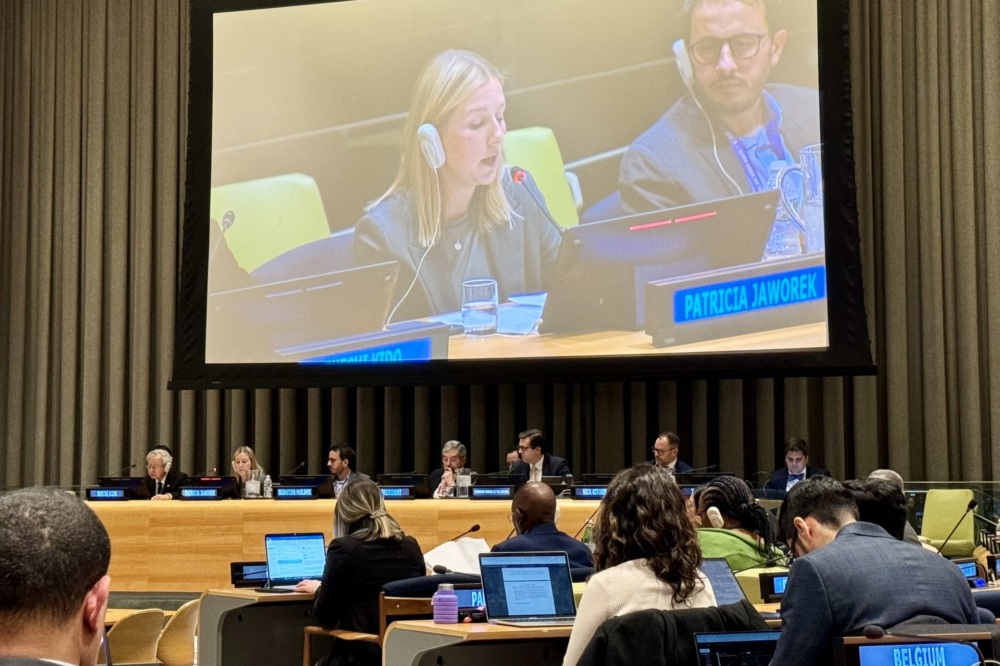
Remarks by Former Senator Sam Nunn at the World Institute for Nuclear Security (WINS) 10th Anniversary
Senator Nunn, NTI Co-Chair, gives remarks at the World Institute for Nuclear Security (WINS) 10th Anniversary event in Vienna, Austria.
India’s Integration into an Expanded Nonproliferation System
WASHINGTON, June 30, 2010 – The following is a statement from The Working Group on an Expanded Nonproliferation System, established as part of a project sponsored by the Center for Strategic and International Studies and the Nuclear Threat Initiative. The group includes experts in international nuclear affairs and in foreign policy from both India and the United States. This statement represents the views of the working group members whose names are given below. It does not necessarily represent the views of CSIS or NTI, or of the institutions to which the signers belong.
In 2008, India and the United States, with the concurrence of the Nuclear Suppliers’ Group, completed a path-breaking agreement that made possible civilian nuclear commerce with India. This agreement was intended to put India’s civilian nuclear facilities under safeguards and end India’s nuclear isolation.
It also aimed to bring about more complete Indian participation in the nonproliferation system. The Working Group on an Expanded Nuclear Nonproliferation System believes it is time to move toward this goal by bringing India into the export control groups and other arrangements that are a vital part of the nonproliferation system.
The Indo-U.S. civil nuclear agreement included significant changes in U.S. law and policy that were possible only because of India’s strong record of preventing its own nuclear materials from being illegally exported or otherwise used for proliferation. India and the United States agree that it is vital to prevent the spread of nuclear weapons and associated technology. Both countries agree, in other words, on the importance of nonproliferation. India’s nuclear weapons prevent it from joining the Non-Proliferation Treaty as a non-weapons state, and the language of the treaty precludes India’s adhering as a weapons state. In light of the frictions generated by India’s anomalous status, the working group believes it is more useful to focus on other institutions and mechanisms that can help strengthen the international nonproliferation system.
The working group urges the Indian and U.S. governments to give high priority to reaching agreement in principle on this issue in the context of U.S. President Barack Obama’s planned trip to India in November 2010. Specifically, the group recommends that the two governments:
A policy that followed these recommendations would have clear benefits for both countries and for the world. For India, membership in these institutions would acknowledge India’s essential role in preventing proliferation of nuclear and other weapons of mass destruction. It would fulfill the promise implicit in the U.S.-India nuclear agreement of treating India as a responsible state with advanced nuclear technology. It would bring India into the process of creating export control standards for the future, a particularly important point in light of India’s rapidly growing economy and expanding footprint in international trade in sophisticated technology.
For the United States, this policy would strengthen the global nonproliferation system that has been a high priority for administrations of both U.S. political parties for several decades. It would strengthen the export control systems of a potentially significant supplier of sensitive items, and ensure that there are no hurdles in India’s implementing future changes to export control regimes. Indian membership would bring its major nautical presence into the PSI. This would be especially important in the critical sea lanes of communication in and near the Indian Ocean. These actions would also strengthen the U.S. partnership with India.
The world at large, finally, would benefit from a stronger nonproliferation system. This objective has strong and broad support around the world. It would underline India’s commitment to the global nonproliferation system.
Implementing the working group’s recommendations will involve policy adjustments and a great deal of hard work, both within the Indian and U.S. governments and in consultations with other members of the organizations in question. Most of the organizations expect their members to be NPT signatories, though in some cases this has not always been a condition of membership, and it is not enshrined in law. Bringing India in would require adjusting that practice. The working group notes in this context that India, like the other members of the export control organizations, has a longstanding commitment to working in good faith toward nuclear disarmament.
We believe that India’s membership would support the fundamental purposes for which the nonproliferation export control groups were established, and that such a change would be desirable. The working group believes that India’s membership would give India additional responsibilities for managing global safety and security, even as it recognized India’s increasingly important participation in global nuclear commerce.
In the year since it was first formed, the working group has had useful discussions on nuclear issues that figure in the official U.S.-India dialogue, including nuclear security and the prerequisites for nuclear disarmament. The group will continue to explore the issues that touch on nonproliferation, in the hope of adding to and deepening the U.S.-India conversation on a subject both countries care deeply about.
* * *
The Working Group on an Expanded Nonproliferation System was formed in the summer of 2009 to identify goals for the nonproliferation system on which India and the United States might be able to agree, and to develop a workable road map for a revived nonproliferation system that could integrate India. Members joining in this statement are:
From the United States:
Joan Rohlfing, President, Nuclear Threat Initiative
Teresita C. Schaffer, Director, South Asia Program, Center for Strategic and International Studies; former Deputy Assistant Secretary of State for South Asia
Walter Andersen, School of Advanced International Studies, Johns Hopkins University; former State Department official
Lisa Curtis, Senior Research Fellow, Heritage Foundation
Scott Sagan, Caroline S.G. Munro Professor of Political Science and Co-Director, Center for International Security and Cooperation (CISAC), Stanford University
From India:
P. R. Chari, Research Professor, Institute for Peace and Conflict Studies, New Delhi Lalit Mansingh, former Foreign Secretary of India and former Ambassador to the United States
C. Raja Mohan, Strategic Affairs Editor, Indian Express
Lt. General (R) V. Raghavan, Director, Delhi Policy Group
K. C. Singh, former Secretary, Ministry of External Affairs, New Delhi
T.P. Sreenivasan, Former Governor for India of the IAEA, Vienna, and Director General, Kerala International Centre, Trivandrum
M.R. Srinivasan, Former Chairman, Indian Atomic Energy Commission
For more information, please contact Teresita Schaffer, [email protected], 202-775-3171.
###
The Center for Strategic and International Studies (CSIS) seeks to advance global security and prosperity in an era of economic and political transformation by providing strategic insights and practical policy solutions to decision makers. CSIS does not take specific policy positions; accordingly, all views expressed herein should be understood to be solely those of the authors.
The Nuclear Threat Initiative (NTI) works to reduce the risk of use, and the spread, of nuclear, biological and chemical weapons. NTI is a non-profit, non-partisan and global initiative.
Sign up for our newsletter to get the latest on nuclear and biological threats.
Senator Nunn, NTI Co-Chair, gives remarks at the World Institute for Nuclear Security (WINS) 10th Anniversary event in Vienna, Austria.
NTI Program Officer Patricia Jaworek joined a panel discussion on the devastating humanitarian effects of nuclear weapons and shared her research on the subject.
The paper highlights the need for renewed attention to the catastrophic effects of nuclear conflict as a crucial step toward reducing the risk of nuclear use.

